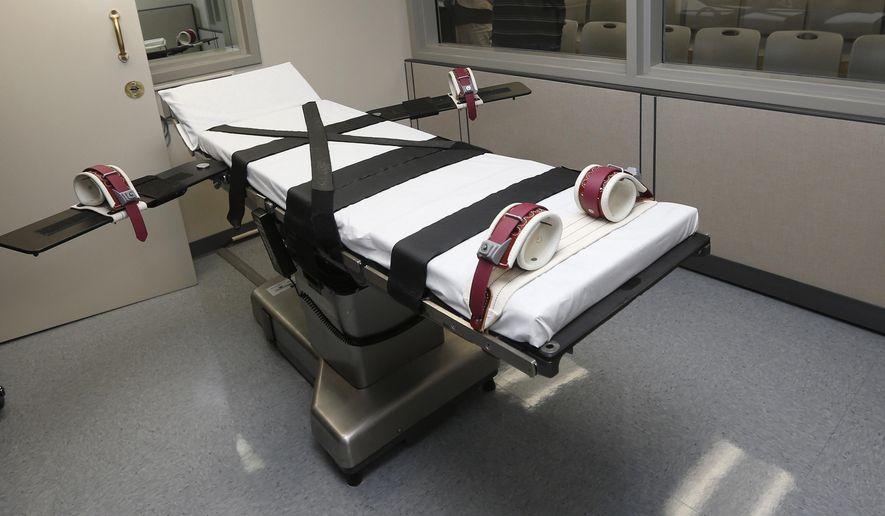An Oklahoma man was put to death Thursday after the Supreme Court lifted a stay of execution issued by a lower court over his challenge to Oklahoma’s three-drug cocktail for putting him to death.
It was the first execution in the state to take place in six years.
John Grant, and other prisoners, challenged the manner in which Oklahoma was set to execute them.
They argued they would suffer an 8th amendment violation if the state used its method of lethal injection, which could cause unnecessary pain, and deserved to make their claims in court.
“Oklahoma cannot be permitted to execute these Respondents on the eve of their present[ing] what may be a viable Eighth Amendment claim to the federal courts,” their lawyer argued in a brief to the justices.
The request came after botched executions in 2014 and 2015, according to the Associated Press.
One inmate in 2014 struggled for 43 minutes before dying in the execution chamber. The three drugs used are potassium chloride, midazolam, and vecuronium bromide. In combination, they sedate, paralyze and stop the heart.
In a five to three vote announced Thursday, the high court decided Oklahoma could go ahead and allow the executions to resume.
Justice Neil M. Gorsuch did not take part in considering the state’s petition to lift the stay, but the court’s other five Republican appointees decided to do so, siding with Oklahoma.
The court’s three Democratic-appointees, Justice Sonia Sotomayor, Justice Elena Kagan, and Justice Stephen G. Breyer, would have left the stay of execution in place.
Grant was executed Thursday, according to the Associated Press. He was in prison for a series of armed robberies when he murdered a prison worker and was sentenced to death in 1999.
By March, Oklahoma plans to execute more than half a dozen inmates.
“The State has invested much effort in preparing for the executions,” the state argued in court papers. “The victims do not deserve the retraumatization, dashed expectations, and delayed justice continuing the stays would entail.”
More than two dozen other inmates on death row in Oklahoma are currently involved in a federal lawsuit challenging the state’s lethal injection method.
- The Associated Press wire service contributed to this report.
• Alex Swoyer can be reached at aswoyer@washingtontimes.com.




Please read our comment policy before commenting.